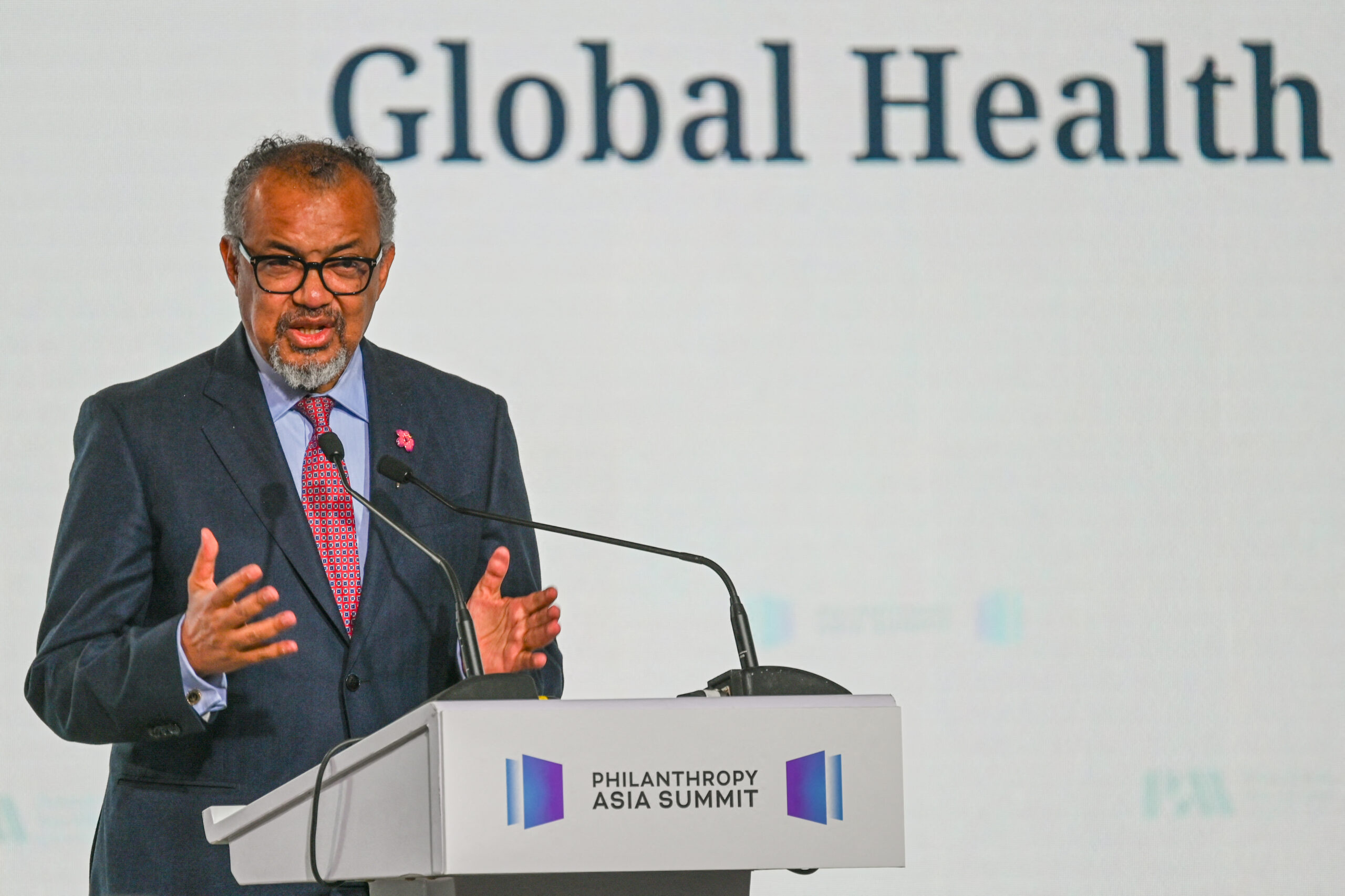Health
WHO’s Tedros Urges U.S. to Reconsider Exit from WHO

Tedros Adhanom Ghebreyesus, Director-General of the World Health Organization (WHO), has called on the United States to reconsider its decision to withdraw from the organization. In an interview with POLITICO, Ghebreyesus emphasized the critical role the WHO plays in global health and urged the Trump administration to remain engaged.
The remarks come after President Donald Trump announced in late May 2020 that the United States would terminate its relationship with the WHO. Trump cited the organization’s handling of the COVID-19 pandemic as a primary reason for the withdrawal. He accused the WHO of being overly influenced by China, particularly regarding the early stages of the outbreak.
Importance of U.S. Participation
Ghebreyesus highlighted that the U.S. contributes significantly to the WHO’s budget, making up approximately 15 percent of its funding. The departure of such a key member state would not only impact the organization’s operations but also hinder global health initiatives. The WHO’s work is vital in combating diseases, coordinating responses to health emergencies, and providing crucial public health guidance worldwide.
In his statements, Ghebreyesus argued that the fight against the COVID-19 pandemic requires collective action. He noted that the WHO’s mission is to ensure that every country, regardless of its resources, can access the tools and knowledge necessary to combat health crises effectively.
Additionally, Ghebreyesus pointed out that the pandemic emphasizes the interconnectedness of global health. “No country can address this threat alone,” he stated, urging nations to collaborate and support one another. The U.S. withdrawal, he warned, could lead to diminished health outcomes not just in the U.S. but globally.
Looking Ahead
As discussions about the U.S. withdrawal continue, the WHO remains focused on its efforts to manage the ongoing health crisis. Ghebreyesus expressed hope that the U.S. would reconsider its position and work alongside other nations to strengthen the organization’s capacity in responding to such global threats.
The WHO’s commitment to transparency and reform has been reiterated in light of the criticisms it has faced. Ghebreyesus affirmed that the organization aims to learn from past mistakes and improve its response mechanisms. He underscored the importance of maintaining strong partnerships with all member states to enhance collective health security.
In conclusion, the call from Ghebreyesus serves as a reminder of the essential role the WHO has in managing global health issues. As the U.S. evaluates its stance, the implications of its decision will resonate throughout the international community, influencing the future trajectory of global health collaboration.
-

 Top Stories1 month ago
Top Stories1 month agoRachel Campos-Duffy Exits FOX Noticias; Andrea Linares Steps In
-

 Top Stories1 week ago
Top Stories1 week agoPiper Rockelle Shatters Record with $2.3M First Day on OnlyFans
-

 Top Stories6 days ago
Top Stories6 days agoMeta’s 2026 AI Policy Sparks Outrage Over Privacy Concerns
-

 Sports5 days ago
Sports5 days agoLeon Goretzka Considers Barcelona Move as Transfer Window Approaches
-

 Top Stories1 week ago
Top Stories1 week agoUrgent Update: Denver Fire Forces Mass Evacuations, 100+ Firefighters Battling Blaze
-

 Top Stories1 week ago
Top Stories1 week agoOnlyFans Creator Lily Phillips Reconnects with Faith in Rebaptism
-

 Top Stories5 days ago
Top Stories5 days agoWarnock Joins Buddhist Monks on Urgent 2,300-Mile Peace Walk
-

 Entertainment5 days ago
Entertainment5 days agoTom Brady Signals Disinterest in Alix Earle Over Privacy Concerns
-

 Top Stories7 days ago
Top Stories7 days agoOregon Pilot and Three Niece Die in Arizona Helicopter Crash
-

 Top Stories4 days ago
Top Stories4 days agoCBS Officially Renames Yellowstone Spin-off to Marshals
-

 Health2 months ago
Health2 months agoTerry Bradshaw Updates Fans on Health After Absence from FOX NFL Sunday
-

 Sports4 days ago
Sports4 days agoSouth Carolina Faces Arkansas in Key Women’s Basketball Clash



